The Bang-Bang Club (29 page)
Read The Bang-Bang Club Online
Authors: Greg Marinovich

When Joao finally calmed down, Kevin took him home. At Joao’s flat, Viv let them in and, seeing the state they were in, retreated to bed. Unable to find more alcohol, they settled down to make a joint. They were getting even more wasted, becoming truly maudlin. The conversation turned again to Ken, Thokoza and death. Kevin said he’d seen the footage on television and told Joao he’d acted like a professional - shooting pictures, shouting orders, carrying friends: ‘Ken would have been proud of you.’ But Joao felt overwhelmingly guilty and it hurt. ‘How could I have taken pictures of him? Have I truly lost my soul?’ he sobbed in Kevin’s arms. Kevin held on tight and said, ‘At least you were there.’
The previous day, Monica had seen Joao’s picture of her dead husband in the newspapers, and she focused some of her anger at her loss on Joao. She was in pain and confused, and she felt a hatred of the pictures, and of the photographer. She refused to allow Joao to carry Ken’s coffin. Joao was hurt - he needed to be next to Ken, but he understood and was prepared to honour her wishes. That night he considered giving up photography. Monica was not to get her way -
Robin, from
The Star
, who was organizing the funeral, flatly refused to take Joao off the list. She knew that Ken would have wanted Joao as a pallbearer. In the end, Joao and Gary were at the front of the coffin, carrying it shoulder high, tears running down their faces. After Ken’s body was put into the hearse, Joao moved away, far enough from the crowd to not have to speak to anyone. Viv followed anxiously; the events and trauma that Joao had deliberately kept out of her home had now broken in, swamping them both. Monica came to him, in tears, and hugged him. She said that it was OK, that he had done the right thing, and that she forgave him.
Robin, from
The Star
, who was organizing the funeral, flatly refused to take Joao off the list. She knew that Ken would have wanted Joao as a pallbearer. In the end, Joao and Gary were at the front of the coffin, carrying it shoulder high, tears running down their faces. After Ken’s body was put into the hearse, Joao moved away, far enough from the crowd to not have to speak to anyone. Viv followed anxiously; the events and trauma that Joao had deliberately kept out of her home had now broken in, swamping them both. Monica came to him, in tears, and hugged him. She said that it was OK, that he had done the right thing, and that she forgave him.
As he and Monica clung to each other, a strange memory from just a few weeks earlier forced its way into his consciousness. Ken, Kevin and Joao had come for a braai at my house. We were unwinding with a few drinks and a joint, enjoying a brief break from the violence and the campaigning, and Ken had startled us by saying, ‘One of us is going to get whacked, one of these days.’
16
THE LAND OF MILK AND HONEY
If I had wings, I would fly.
An elderly woman returning to her home after decades of being forced to live in the homeland of Bophuthatswana, to which she had been removed under grand apartheid’s social engineering.

22 April 1994
On the day of Ken’s funeral, I underwent my fifth operation in five days. It was difficult to concentrate and even more so to differentiate between reality and hallucination. My points of reference were the operations: the surgeon would loom over me saying that the flesh around the wound had continued to die off, and that he needed to operate yet again. The nauseating gurney-ride through the corridors to the operating-theatre would dissolve and the next lucid moment was one of emerging from the anaesthetic, pain eating into my chest, until the next blessed injection of morphine would ease me back to a dissociated, narcotic world.
Every day, friends would come visit, but the stream of visitors blurred. I forgot who came to see me, and what they said, what I said. I was drifting between substance and illusion. But there was one moment of absolute clarity, when Ken’s mother, Geri, came in with a bunch of red roses from the funeral, their buds on the point of opening, and said, ‘Ken would have wanted you to have these.’ Though I don’t
particularly like roses, I kept them for months.
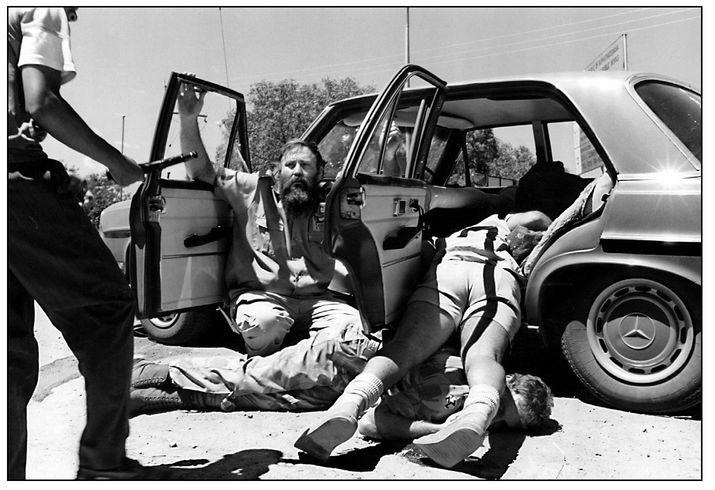
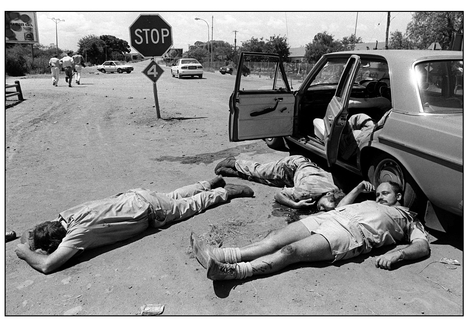
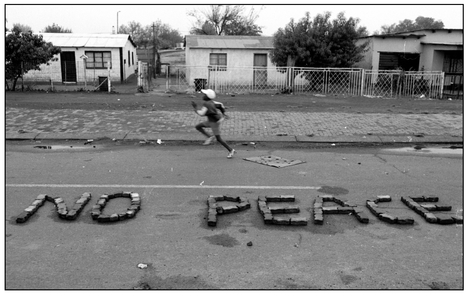
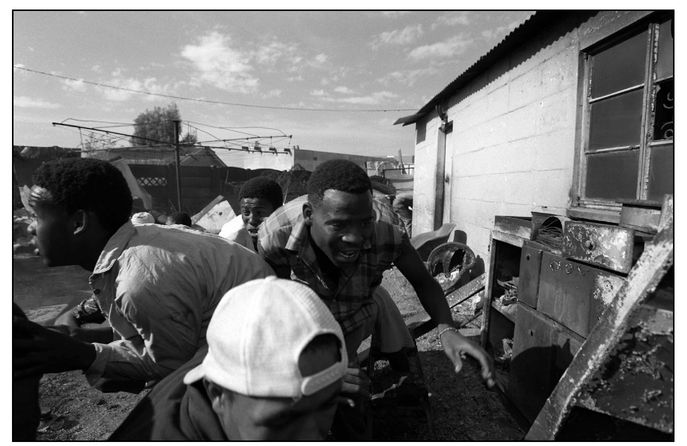
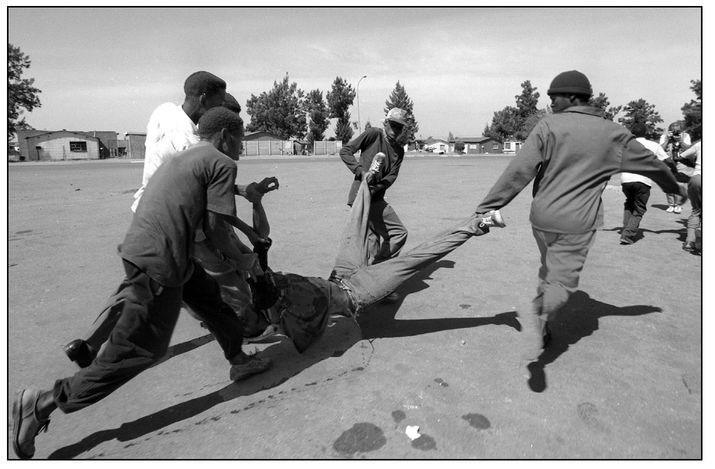
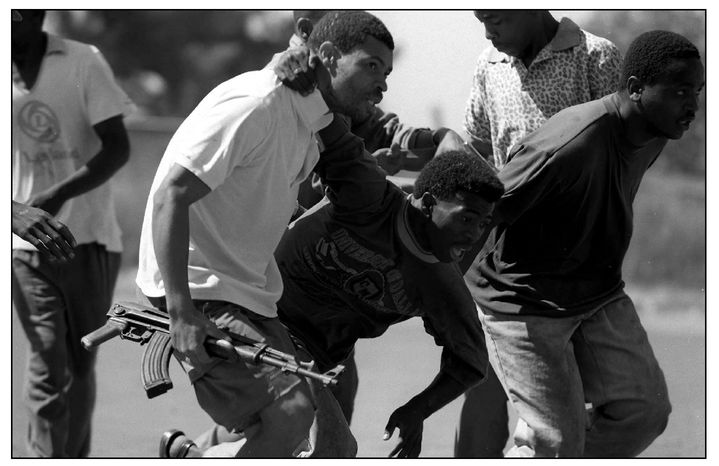
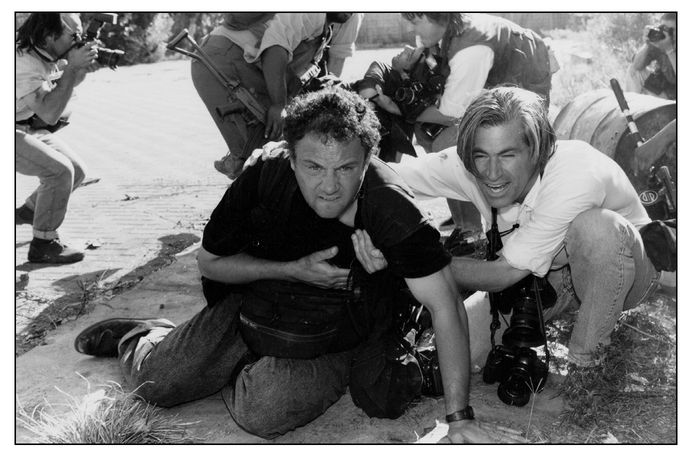
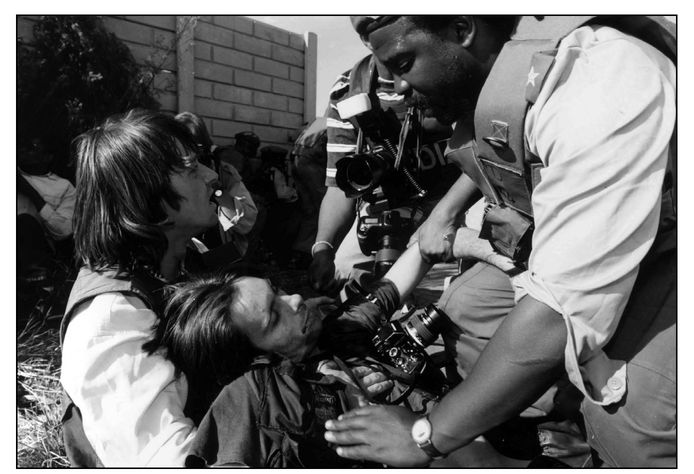
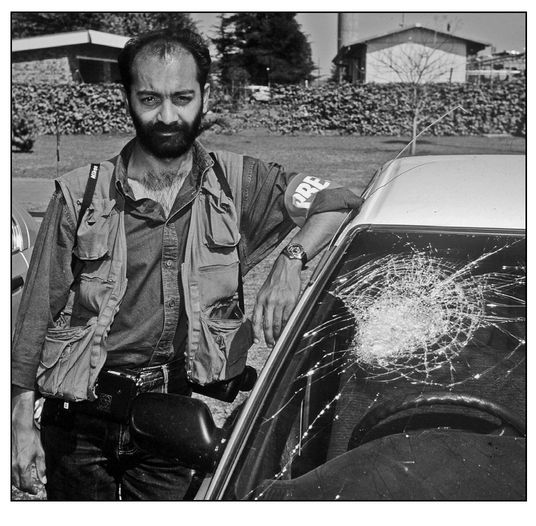
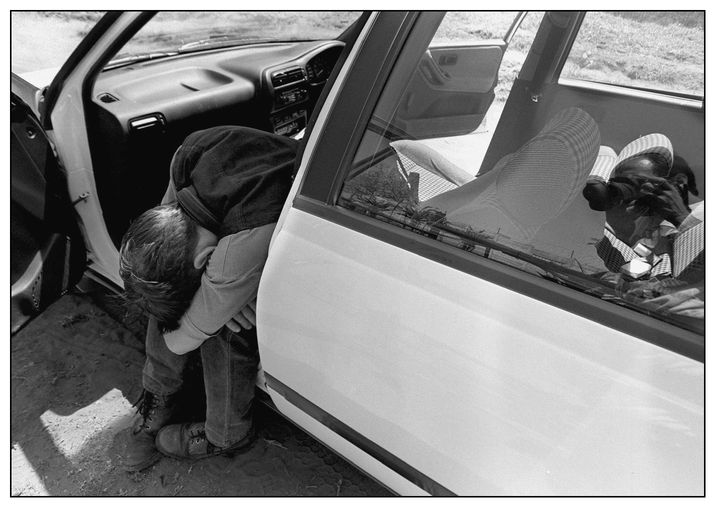
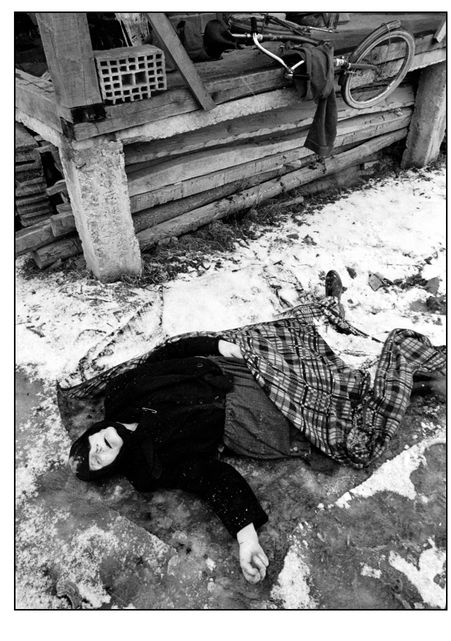
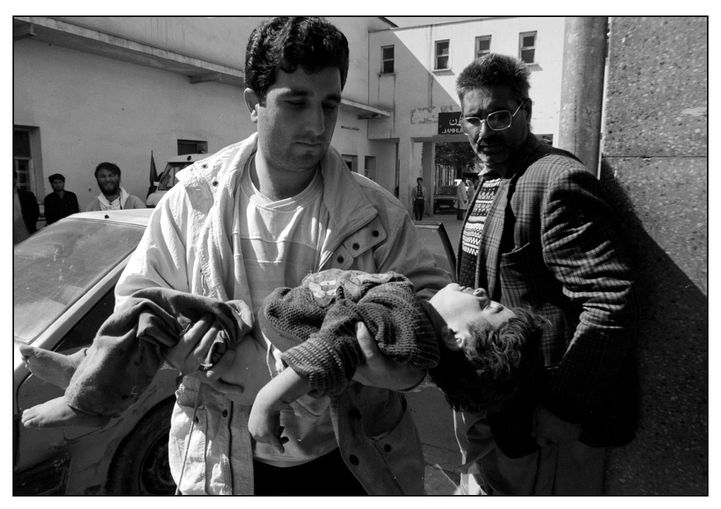
particularly like roses, I kept them for months.

Alwyn Wolfaardt, a member of the extreme right-wing Afrikaner movement (the AWB) begs for his life shortly before being executed by a Bophuthatswana policeman after an abortive attempt to prop up the tyrannical regime of the homeland of Bophuthatswana, March 1994. (Kevin Carter/Corbis Sygma)

Journalists run from the scene of the execution of the AWB members, March 1994. (Greg Marinovich)

A young boy races past the words ‘No Peace’ in the dead zone near Thokoza’s Khumalo Street, shortly before South Africa’s first non-racial election in April 1994. (Joao Silva)

ANC self-defence-unit members duck gunfire during a clash with Inkatha militants from the hostels and houses of ‘Ulundi’ in the dead zone near Khumalo Street. (Joao Silva)

ANC fighters carry a wounded comrade, spouting blood from his side, during an attack on the Inkatha stronghold of Mshay’zafe Hostel in Thokoza on 19 April, 1994 - the day after Ken Oosterbroek was killed in the same area. (Joao Silva)

ANC fighters with an AK-47 carry a wounded comrade during an attack on the Inkatha stronghold of Mshay’zafe Hostel in Thokoza. (Joao Silva)

A wounded Greg Marinovich is assisted by James Nachtwey, while Joao Silva takes pictures of Gary Bernard and an officer from the National Peacekeeping Force as they carry the fatally wounded Ken Oosterbroek in the background, 18 April 1994, Thokoza. (Juda Ngwenya / Reuters)

An officer with the National Peacekeeping Force assists Gary Bernard with a fatally wounded Ken Oosterbroek. (Joao Silva)

Abdul Shariff, photographed in 1993 next to his car, which was damaged during township clashes. Abdul was killed in cross-fire between ANC and Inkatha militants in Kathlehong township on 9 January, 1994. (Kevin Carter)

An exhausted Gary Bernard during a break from covering violence after South Africa’s first democratic election in 1994. (Joao Silva)

Left:
A Serb woman lies dead in the snow just hours after she was given protection by Croat soldiers during an offensive on 26 December, 1991 after Croat forces retook parts of the Papuk mountains - traditionally an ethnically mixed area. Some Croatian units were trying to protect civilians (as in the case of this woman) but others were intent on killing them. (Greg Marinovich)

Other books
The Ex Games 3 by J. S. Cooper, Helen Cooper
A Dangerous Expectation (The Gentlemen Next Door) by Gray, Cecilia
Babel Found by Matthew James
Marysvale by Jared Southwick
A Well-deserved Murder (Trevor Joseph Detective series) by John, Katherine
Cragbridge Hall, Book One: The Inventor's Secret by Morris, Chad
Alien Mate (Zerconian Warriors Book 3) by Sadie Carter
Impact by Rob Boffard
The Night Listener : A Novel by Armistead Maupin